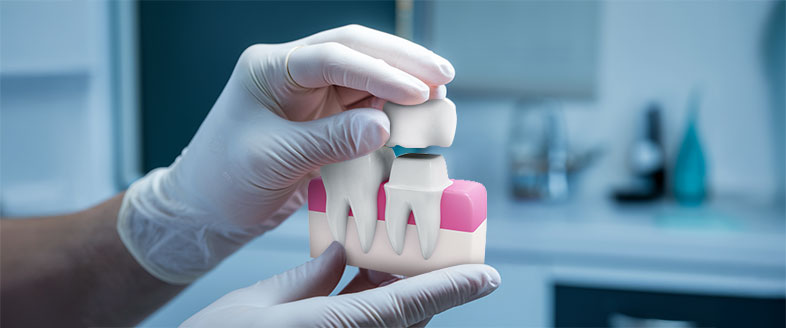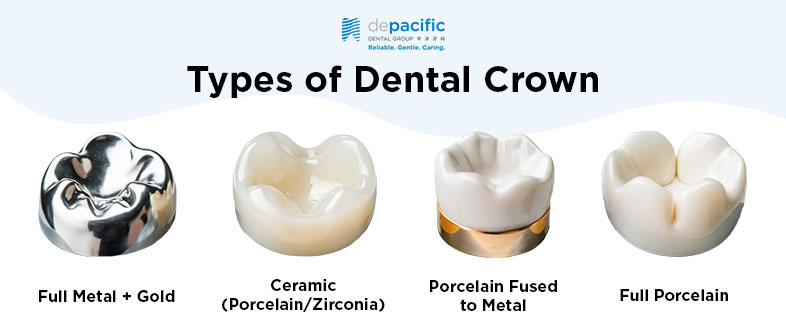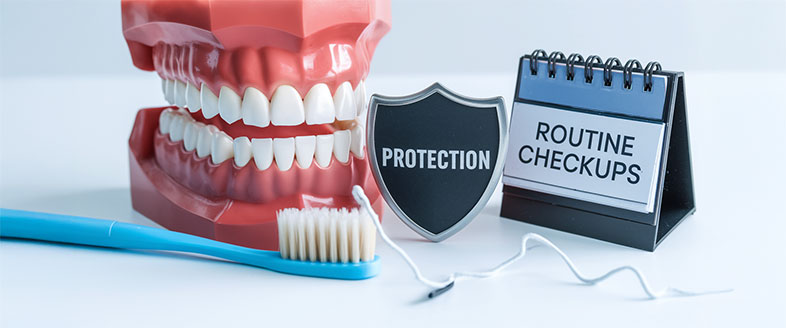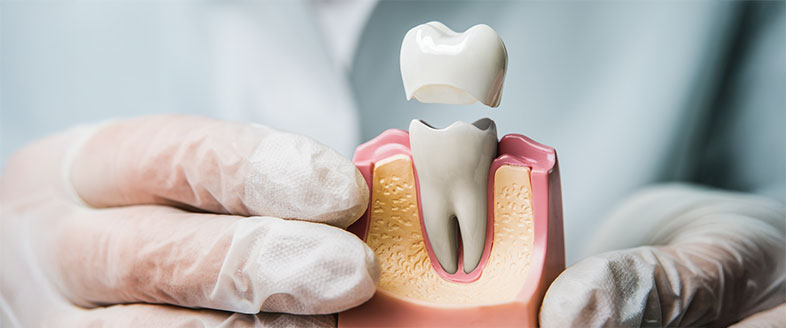Dental crowns are versatile dental solutions used for various purposes—from protecting a tooth from further damage to restoring a badly damaged tooth or enhancing your smile. They are not just for severely damaged teeth; they can prevent further issues and help achieve a flawless appearance.
Today, dental crowns come in a variety of durable materials that can last for years with minimal care. Whether you're contemplating a crown or your dentist has recommended one, this article covers everything you need to know: reasons for getting a crown, types of dental crowns, costs involved, and available subsidies.
Why Would a Tooth Need a Crown?

A crown is a tooth-shaped cap that fits over an entire tooth. Typically made from porcelain, resin, or metal, a crown can last for 10 to 15 years. However, its lifespan depends on several factors, including oral hygiene and the forces exerted during chewing and biting.
Here are some common reasons why you might need a crown:
Protection and Teeth Restoration
Cosmetic Improvements
Functional Benefits
Other Situations
What is the Dental Crown Procedure?
Each dental crown is custom-made, involving several stages:
First Visit
Second Visit
Common Types of Dental Crowns

Choosing the right type of crown depends on your oral health needs and aesthetic preferences. Here are some common options:
Type of Crown | What It Is | Benefits |
|---|---|---|
Full Metal (Gold Alloy) | Made entirely from metal, usually gold or other alloys. | |
Zirconia (Ceramic) | Crafted from zirconium oxide, a strong and durable ceramic material. | |
Porcelain Fused to Metal (PFM) | Combine a tooth-coloured porcelain layer fused to a metal substructure. | |
Full Porcelain | Made entirely from porcelain. |
What is the Cost of Crowns for Teeth?
At dePacific, the price of dental crowns starts from S$1100 per tooth (before GST), depending on the material. We offer porcelain fused to metal (PFM) and full porcelain crowns.
Your dentist will thoroughly examine your teeth and overall oral health to see if a crown is the best option for you. If a crown is recommended, they will explain the reasons and discuss which type of crown best suits your needs.
Can MediSave Be Used For Crowns?
No, MediSave typically does not cover non-surgical dental treatments. However, Community Health Assist Scheme (CHAS) subsidies can cover part of the dental crown cost and are available for up to 4 permanent crowns per calendar year*.
Dental Crown Treatment | |
|---|---|
Scheme | Amount Claimable* |
CHAS Orange | $84.50 |
CHAS Blue | $127.50 |
Merdeka Generation | $132.50 |
Pioneer Generation | $137.50 |
How Long Does a Tooth Crown Last?

Crowns typically last about 10-15 years with proper care. Factors influencing longevity include:
Aftercare tips to make your crowns last:
Is a Dental Crown Painful During & After the Procedure?

No, you should not experience pain during the procedure. Local anaesthesia will be administered at the region to make sure you are numb so that the treatment will be pain-free as your dentist prepares the tooth.
It is common to have sore gums or some sensitivity for a few days after the procedure, but it shouldn’t disrupt your daily life and should subside within two weeks.
Do You Need A Dental Crown? Get a Dentist’s Opinion Today

Are you thinking about getting a dental crown? Find out if a dental crown is necessary and explore your options with advice from our dental professionals.
At dePacific Dental, we pride ourselves on being gentle and caring, always putting your needs and comfort first. Ask questions or speak to one of our patient colleagues by booking an appointment here at any of our branches islandwide.

